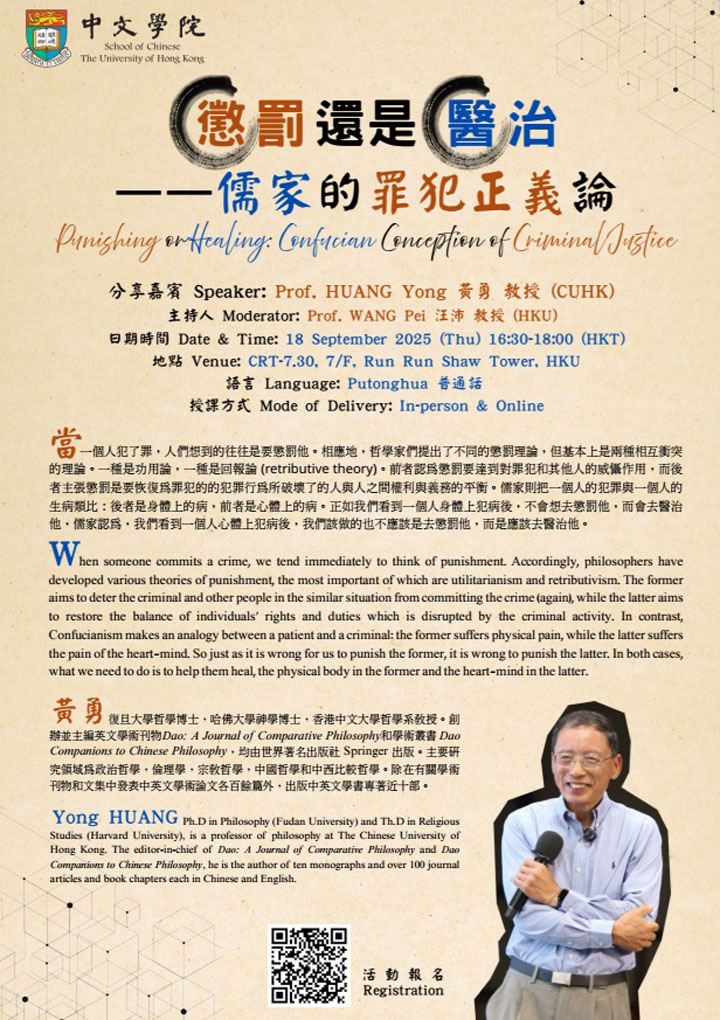懲罰還是醫治:儒家的罪犯正義論 Punishing or Healing: Confucian Conception of Criminal Justice

School of Chinese Scholar Seminar
懲罰還是醫治:儒家的罪犯正義論
Punishing or Healing: Confucian Conception of Criminal Justice
摘要 Abstract:
當一個人犯了罪,人們想到的往往是要懲罰他。相應地,哲學家們提出了不同的懲罰理論,但基本上是兩種相互衝突的理論。一種是功用論,一種是回報論 (retributive theory)。前者認為懲罰要達到對罪犯和其他人的威懾作用,而後者主張懲罰是要恢復為罪犯的的犯罪行為所破壞了的人與人之間權利與義務的平衡。儒家則把一個人的犯罪與一個人的生病類比:後者是身體上的病,前者是心體上的病。正如我們看到一個人身體上犯病後,不會想去懲罰他,而會去醫治他,儒家認為,我們看到一個人心體上犯病後,我們該做的也不應該是去懲罰他,而是應該去醫治他。
When someone commits a crime, we tend immediately to think of punishment. Accordingly, philosophers have developed various theories of punishment, the most important of which are utilitarianism and retributivism. The former aims to deter the criminal and other people in the similar situation from committing the crime (again), while the latter aims to restore the balance of individuals' rights and duties which is disrupted by the criminal activity. In contrast, Confucianism makes an analogy between a patient and a criminal: the former suffers physical pain, while the latter suffers the pain of the heart-mind. So just as it is wrong for us to punish the former, it is wrong to punish the latter. In both cases, what we need to do is to help them heal, the physical body in the former and the heart-mind in the latter.
講者簡介 About the Speaker:
黃勇 復旦大學哲學博士,哈佛大學神學博士,香港中文大學哲學系教授。創辦並主編英文學術刊物 Dao: A Journal of Comparative Philosophy 和學術叢書 Dao Companions to Chinese Philosophy,均由世界著名出版社 Springer 出版。主要研究領域為政治哲學,倫理學,宗教哲學,中國哲學和中西比較哲學。除在有關學術刊物和文集中發表中英文學術論文各百餘篇外,出版中英文學書專著近10部。
Yong Huang Ph.D in Philosophy (Fudan University) and Th.D in Religious Studies (Harvard University), is a professor of philosophy at The Chinese University of Hong Kong. The editor-in-chief of Dao: A Journal of Comparative philosophy and Dao Companions to Chinese Philosophy, he is the author of ten monographs and over 100 journal articles and book chapters each in Chinese and English.








